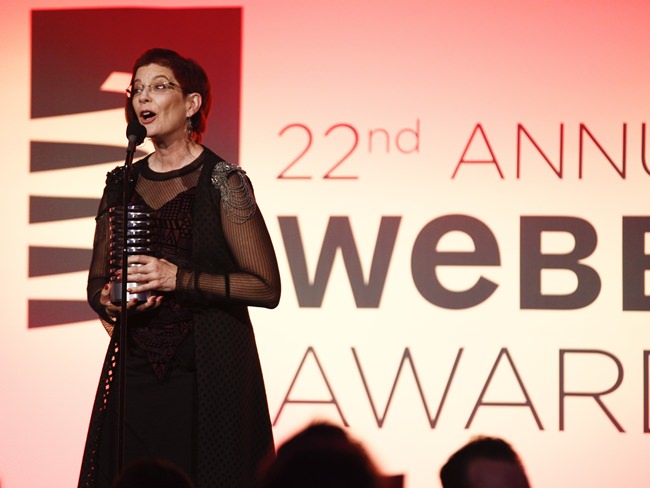
Cambridge, Mass. (AP) – The manifesto Mitchell Baker wrote for the free software community Mozilla declared the internet to be a global public resource and privacy a fundamental right that “must not be treated as optional.”
Twenty years later, as executive chairwoman and “chief lizard wrangler” of the Mozilla Foundation, Baker says she’s on a mission to reassert those principles and update them for an era when online privacy, rational discourse and verifiable information seem elusive. She’s also working to refresh interest in Mozilla’s flagship product, the Firefox browser.
Baker spoke with The Associated Press on the sidelines of MIT’s Solve conference. Questions and comments have been edited for length and clarity.
Q: How did you come up with “Demand better of the internet” as your five-word acceptance speech for the Webby Awards’ Lifetime Achievement Award?
A: I thought of one that was wildly aspirational – “global, safe, trustworthy, open internet”- but felt that didn’t capture some of what’s in the air right now – how the internet can amplify good things but also anti-social behavior. I thought it would be good to acknowledge that.
Q: What do you think of Europe’s new, stricter data rules?
A: As a signal that some set of societies will take action, they’re extremely helpful. The options are to do nothing and hope that things resolve themselves. Or take action, as the European Union has, knowing that some things will work and others won’t, but that we must take a stand as a society that the current path of commercial enterprise is unacceptable.
Q: What data does Mozilla have?
A: For many years we tried to collect absolutely nothing, thinking that was the best way to ensure privacy and security. We shifted in the last few years. But the spirit of the (EU) law, Mozilla’s always been trying to meet. The data we do have is mostly about our own product. We don’t sell it. We’re not monetizing against it.
Q: How is Firefox doing?
A: There’s no question that for a few years, (Google) Chrome has beaten us. They had the newest generation of technology, and it showed. Once you’ve got a product out, it’s hard to change something so deep in the guts. But we found a way to do it.
As of November, with our Firefox Quantum release, we have the technical crown again. It’s not easy to reach consumers about it because you get used to the browsers you’re using, but we do have some reaction.
Q: What’s Mozilla’s approach to virtual reality and augmented reality?
A: Our vision is that thing we used to call the web. Send a link, and anyone can click on that. That seems obvious. But that’s not how AR and VR are today, where you have to pick (a system). If I want to see that content, I have to move to the next closed system. We’re trying to make it interoperable so developers really have a chance to do something new and consumers like us can find and see what we want.
 |
 |





